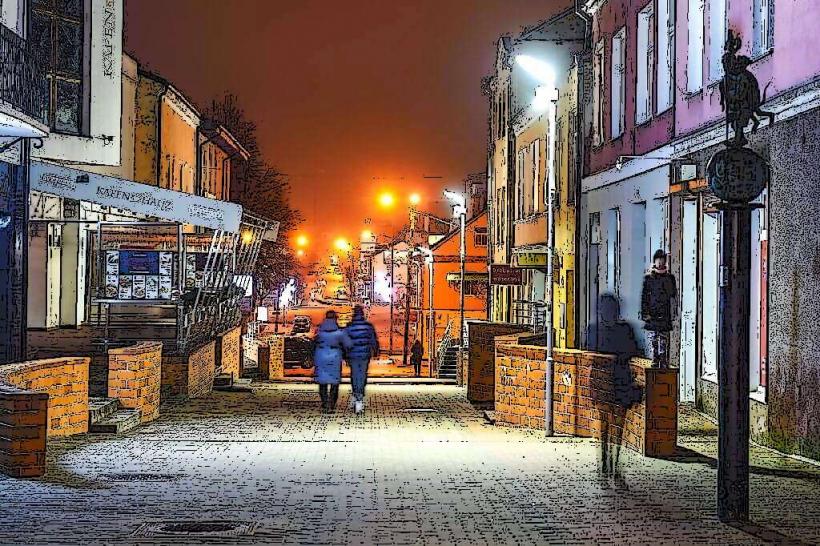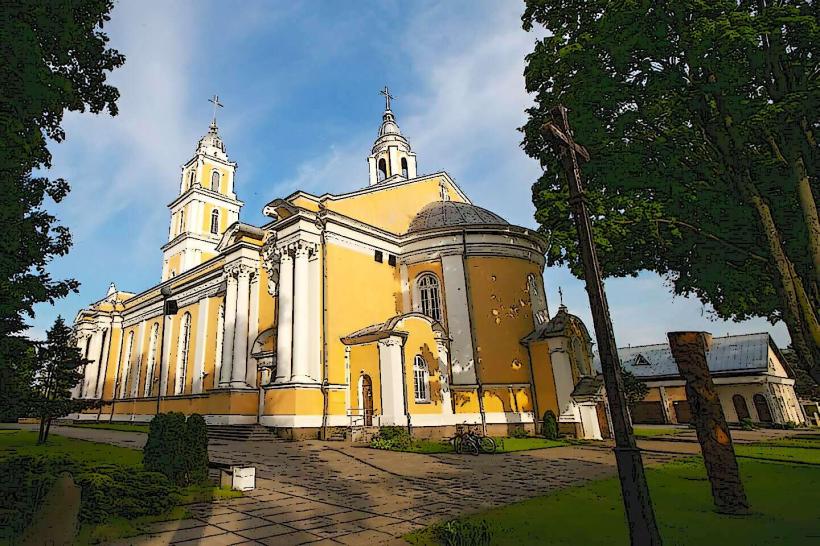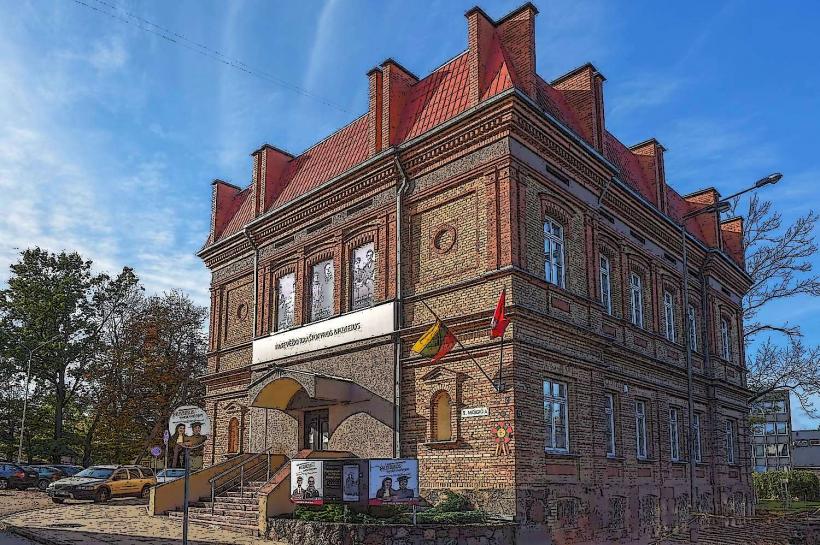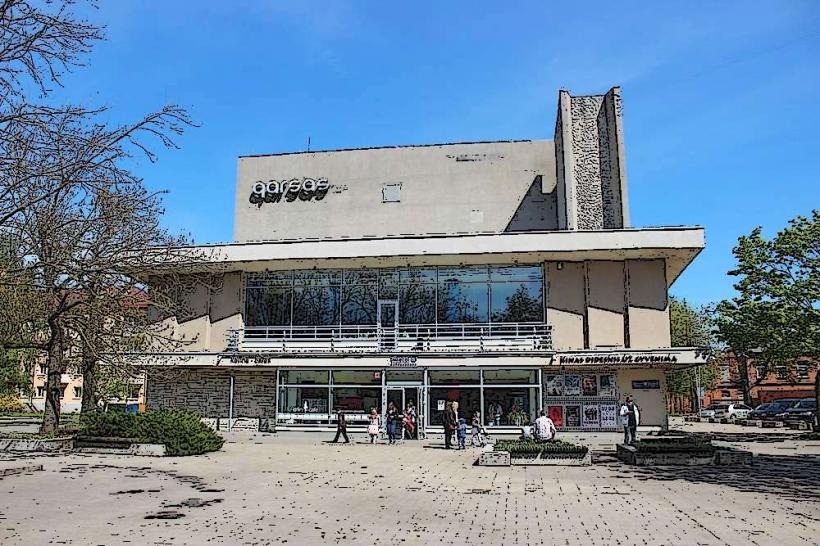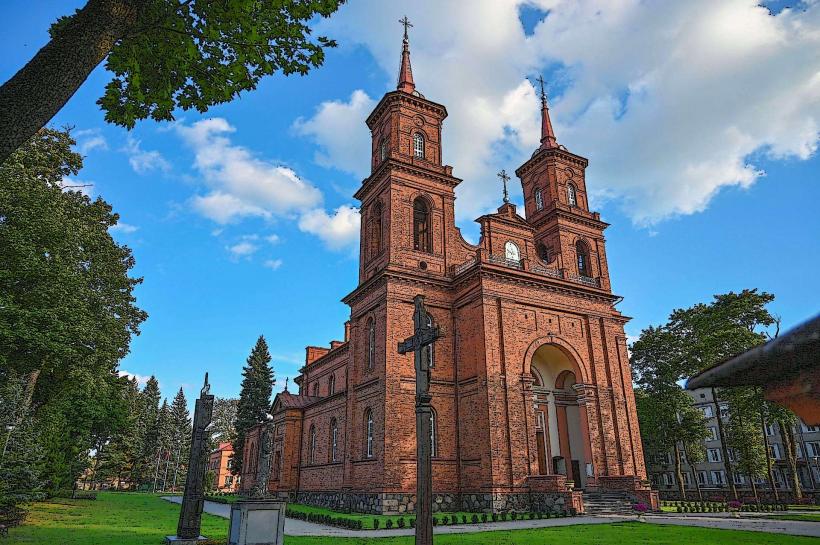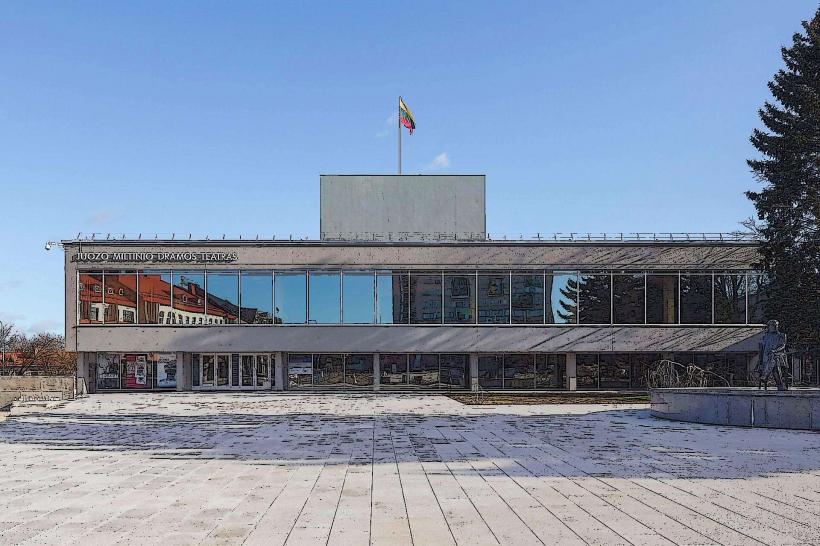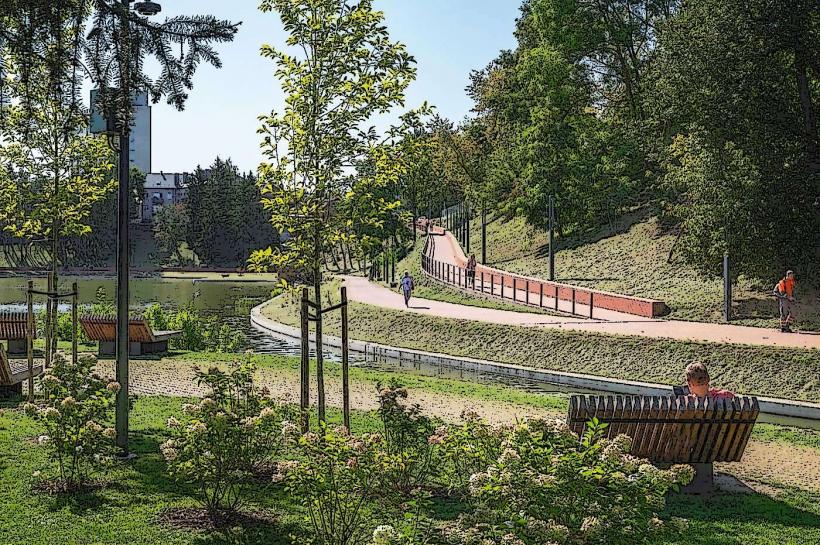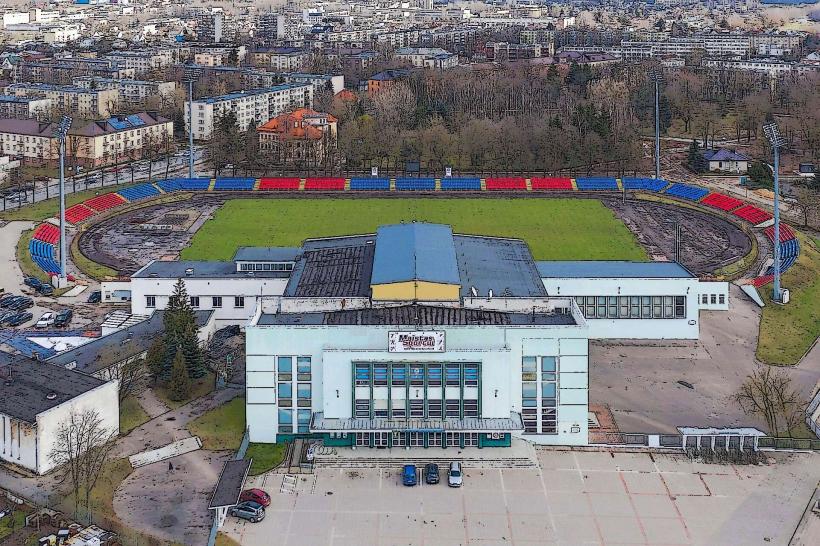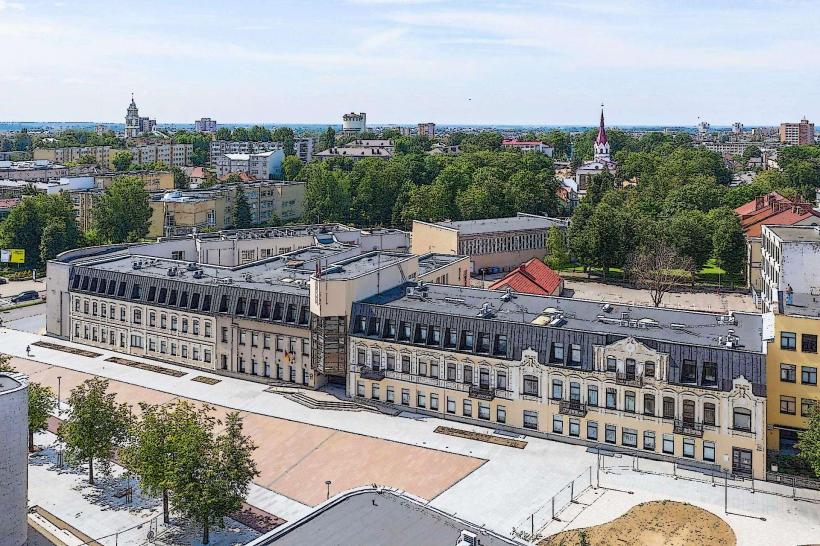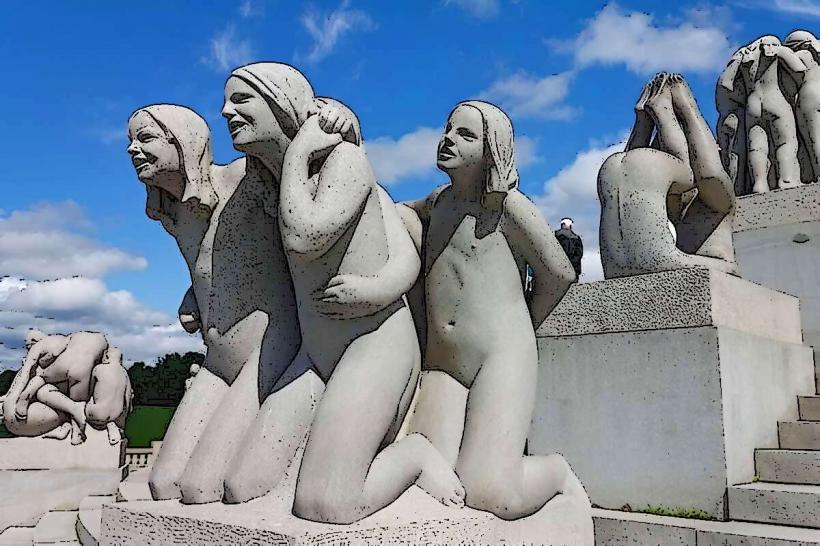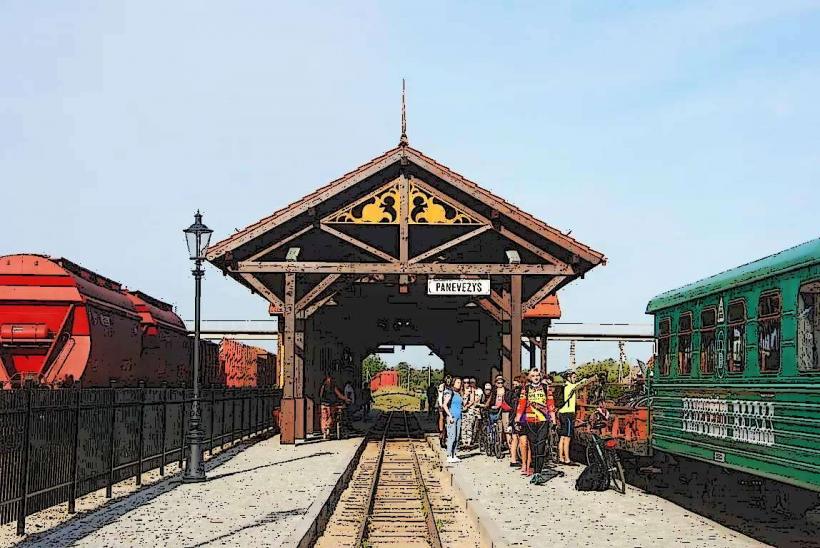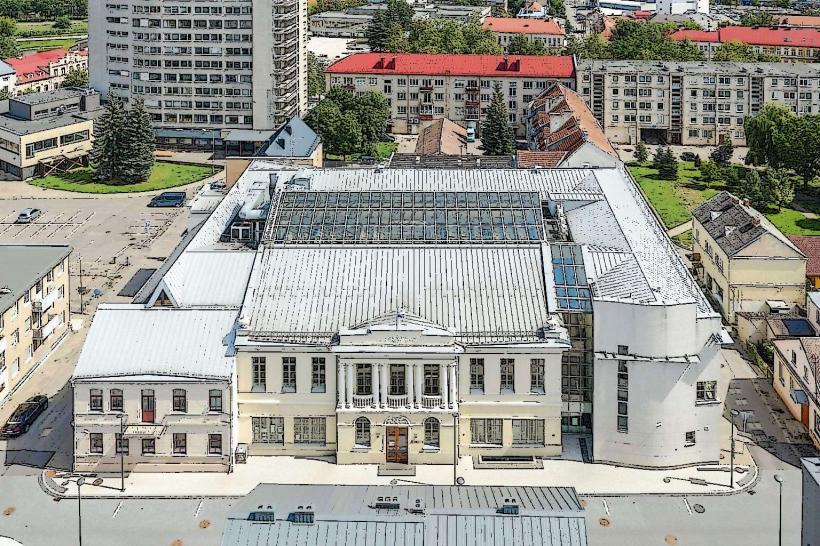Information
Landmark: Holy Trinity ChurchCity: Panevezys
Country: Lithuania
Continent: Europe
The Holy Trinity Church (Švč. Trejybės bažnyčia) in Panevėžys, Lithuania, is a significant religious and architectural landmark in the city. The church, dedicated to the Holy Trinity, is one of the key examples of Baroque architecture in the region and holds cultural and spiritual importance for both the local community and visitors.
History
Foundation and Construction: The Holy Trinity Church was founded in the 18th century, during a time of Baroque influence in Lithuania. The church’s construction began in the mid-1700s, with work spanning several decades. The exact year of completion is not always agreed upon, but the church was likely consecrated sometime around the late 1700s.
Monastic Ties: The church was originally associated with the Trinitarian Order, a Catholic religious order known for its work in ransoming Christian captives from the Ottoman Empire. As a result, the church also played a role in the religious and social life of the city and its surrounding areas.
Historical Significance: Over the centuries, the church has faced numerous challenges, including political changes, wars, and natural disasters. However, it has remained an important spiritual center in Panevėžys. Following the Soviet era, when religious institutions were often suppressed, the church has seen restoration and revitalization as part of the broader renewal of Lithuanian religious and cultural life.
Architecture
The Holy Trinity Church is a prime example of Baroque architecture, and it displays many of the stylistic elements associated with the period.
Exterior
- Baroque Facade: The church’s exterior is characterized by a typical Baroque style, with dramatic curves, ornate decorations, and a strong sense of symmetry. The main facade features a large central entrance, flanked by two smaller doors, creating a grand and welcoming appearance.
- Towers: The church is topped with two towers, which rise above the surrounding area, making the church a prominent feature of the city skyline. The towers are adorned with decorative elements, and their design follows Baroque principles of balance and verticality.
Interior
- Vaulted Ceilings: Inside, the church features a high, vaulted ceiling, a hallmark of Baroque churches, designed to create a sense of grandeur and lightness. The ceiling is often painted with religious motifs and scenes, contributing to the church’s sense of transcendence.
- Altars and Decorations: The main altar of the church is a stunning example of Baroque artistry, with intricate carvings, gilded details, and religious iconography. The altar is dedicated to the Holy Trinity and serves as the focal point of the church’s interior. The side altars also feature ornate decorations, including statues of saints and scenes from biblical stories.
- Stained Glass: The church is adorned with beautiful stained-glass windows, which not only provide colorful light but also depict scenes from the lives of the Holy Trinity and other saints.
Religious and Cultural Importance
- Spiritual Role: The Holy Trinity Church continues to serve as an active place of worship for the local Catholic community. Regular Masses, religious services, and events are held here, making it an integral part of the spiritual life in Panevėžys.
- Cultural Heritage: The church also holds significant cultural value for the city. It is an important historical monument, representing the religious and architectural heritage of Panevėžys. It is often a destination for visitors interested in both religious and cultural tourism.
Visiting the Church
- Location: The Holy Trinity Church is centrally located in Panevėžys, making it easily accessible for both locals and tourists. It is close to other key landmarks, which makes it a convenient stop for those exploring the city.
- Opening Hours: The church is open for visitors during regular hours, with scheduled Masses and religious events. Visitors are welcome to explore the church, especially during non-service hours.
- Admission: Entrance to the church is free, though donations are often welcomed to support the church’s upkeep and community activities.
Conclusion
The Holy Trinity Church in Panevėžys is a stunning example of Baroque architecture and remains an important spiritual and cultural center in the city. Its grand design, rich history, and religious significance make it a must-visit destination for anyone interested in Lithuania’s religious and architectural heritage. Whether for spiritual reflection or architectural admiration, the church is a key highlight of Panevėžys’ historical landscape.

